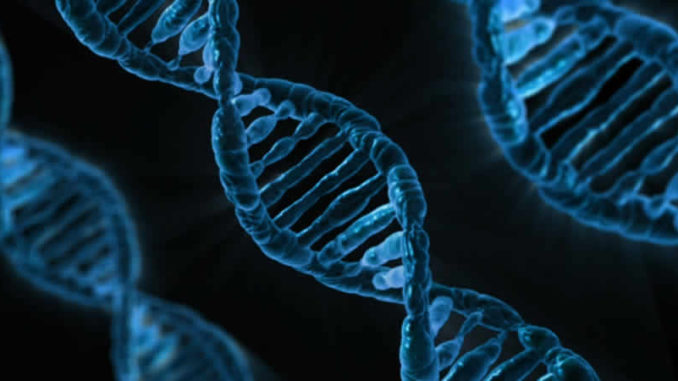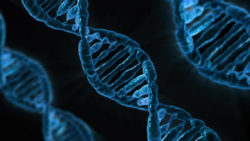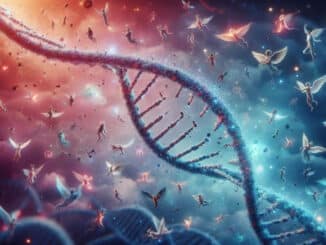
The Science of Epigenetics
„It is not our genes but our beliefs that control our lives.“ – Bruce Lipton (Author of The Biology of Belief)
The science of epigenetics, which literally means „control above genetics“, profoundly changes our understanding of how life is controled. Environmental influences including nutrition, stress, and emotions, can modify genes without changing their basic blueprint. The environment serves as a „contractor“ who reads and engages those genetic blueprints and is ultimately responsible for the character of a cells’s life. It is a single cell’s „awareness“ of the environment that primaruly sets into motion the mechanisms of life.
In fact epigenetics, the study of the molecular mechanisms by which the environment controls gene activity, is today one of the most active areas of scientific reserach. Epigentics reveals that when we change our perceptions and environment, our genes can change as well. The idea that our perceptions override our genes is now at the forefront of medical research. Everything we've left out of the medical model – energy, thoughts, spirit – now turns out to be the primary mechanism of interaction with physical reality.
The story of epigenetic control is the story of how environmental signals control the activity of genes. It is now clear that the Primacy of DNA has now been revised and called the „The Primacy of the Environment“. The new, more sophisticated flow of information in biology starts with an environmental signal, then goes to a regulatory protein and only then goes to DNA, RNA, and the end result a protein.
The science of epigenetics has also made it clear that there are two mechanisms by which organisms pass on heriditary information. Those two mechanisms provide a way for scientists to study both the contribution of nature (genes) and the contribution of nurture (epigenetic mechanisms) in human behaviour. Specific frequencies and patterns of electromagnetic radiation regulate DNA, RNA, and protein synthesis; alter protein shape and function; and control gene regulation, cell division, cell differenciation, morphogenesis, hormone secretion and nerve growth and function.
Just like you and me, cells are shaped by where they live. In other words, it’s the environment, stupid? Your genes do not dictate your life and you change your life when you change your beliefs. You are not „stuck“ with your genes. It’s your own thoughts, emotions, and beliefs that are generating chains of physiological events in your body.
Look at epigenetics in this way: A computer comes loaded with some starter software but as time goes on different additional software programs are downloaded. The computer (the DNA) stays the same, but depending on what software a peron has downloaded (the epigenetic variations), what the computer does and the way it operates can be quite different. So when we think our thoughts and feel our feelings, our bodies respond in a complex formula of biological shifts and alterations, and each experiene pushes buttons of real genetic change within our cells.
The same genes could make a person feel happy or depressed, depending on their environment. Combining research on genetics and cognitive biases—our mental “filters” for interpreting the world—will contribute to a greater understanding of mental disorders and could lead to improved therapies. Genetics studies have identified variants, such as the serotonin transporter-linked polymorphic region (5-HTTLPR) short (S) allele, which make people more sensitive to their environments. People with this S allele are more likely than people with the long (L) variant to develop psychiatric disorders after experiencing adversity in childhood, studies have shown.
The majority of genes estimates range from 75 to 85 % are turned off and on by signals from our environment, including the environment of thoughts, beliefs, and emotions that we cultivate in our brains. One class of theses genes, the immediate early genes (IEGs), takes only three seconds to reach peak expression. IEGs are often regulatory genes, controlling the expression of hundreds of other genes and thousands of other proteins at remote sites in our bodies. That kind of pervasive and rapid change is a plausble explanation for spontaneous healings
19.03.2018
Dr. Akuma Saningong
Keynote Speaker, Motivationstrainer, & Naturwissenschaftler
Die Brücke zwischen Wissenschaft & Spiritualität
Dr. Akuma Saningong
studierte Biotechnologie und molekulare Biotechnologie an der Hochschule Darmstadt und TU München. Er promovierte an der Universität Duisburg-Essen im Bereich der Proteinforschung. Als spiritueller Motivationsredner und Naturwissenschaftler kombiniert er das Wissen von der spirituellen Physik (Quantenphysik), der neuen Biologie der Epigenetik (Du bist nicht ein Opfer Deiner Gene und Du kannst Dich jederzeit selbst neu erfinden) und der Spiritualität, um Dein Potential zu entfesseln.
| Für Artikel innerhalb dieses Dienstes ist der jeweilige Autor verantwortlich. Diese Artikel stellen die Meinung dieses Autors dar und spiegeln nicht grundsätzlich die Meinung des Seitenbetreibers dar. Bei einer Verletzung von fremden Urheberrecht oder sonstiger Rechte durch den Seitenbetreiber oder eines Autors, ist auf die Verletzung per eMail hinzuweisen. Bei Bestehen einer Verletzung wird diese umgehend beseitigt. Wir weisen aus rechtlichen Gründen darauf hin, dass bei keiner der aufgeführten Leistungen oder Formulierungen der Eindruck erweckt wird, dass hier ein Heilungsversprechen zugrunde liegt bzw. Linderung oder Verbesserung eines Krankheitszustandes garantiert oder versprochen wird. Alle Inhalte des Magazins sind kein Ersatz für eine Diagnose oder Behandlung durch einen Arzt, Psychotherapeuten oder Heilpraktiker. |







Hinterlasse jetzt einen Kommentar